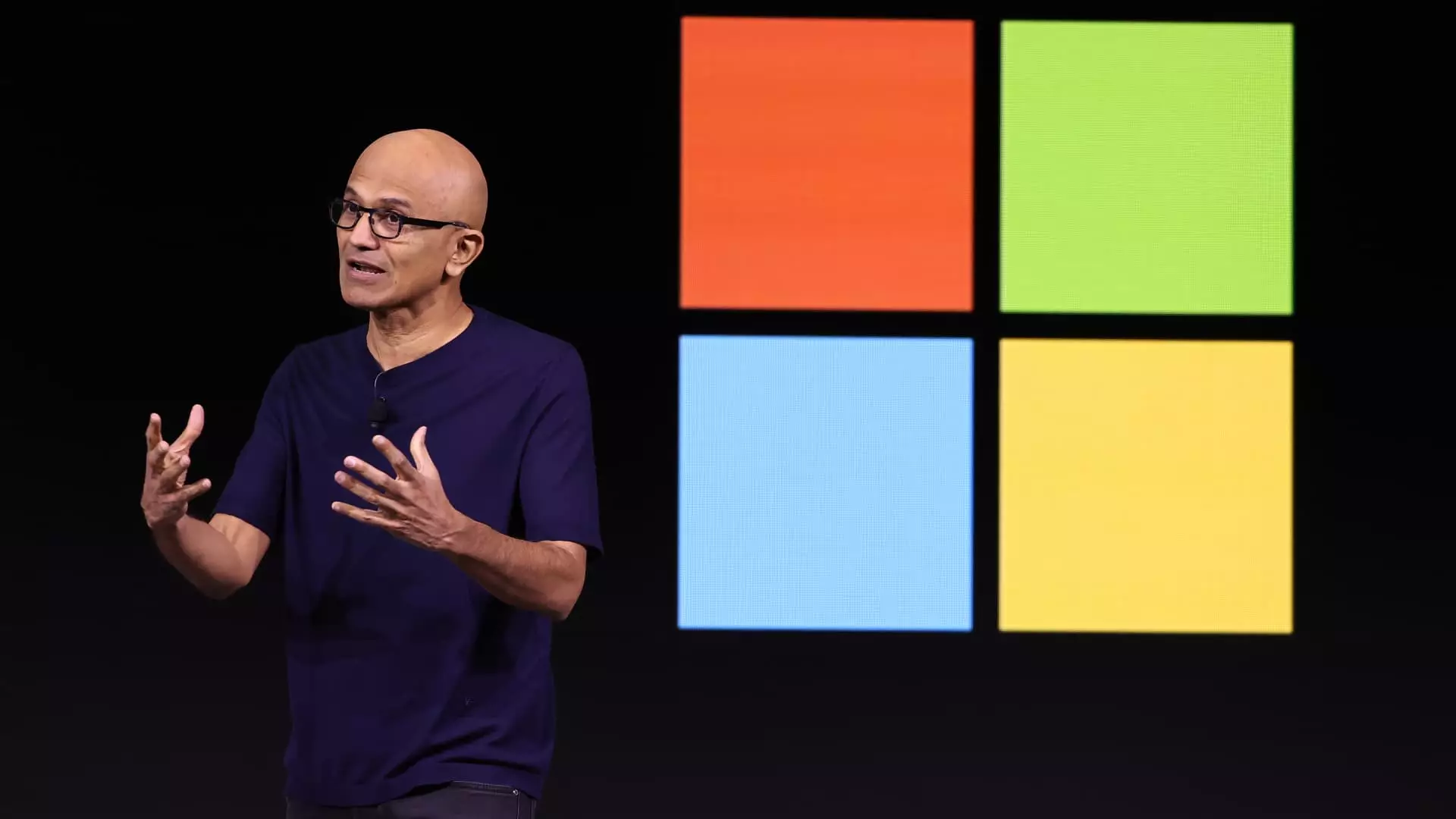In an effort to tackle the mounting fears that artificial intelligence (AI) will replace jobs, Microsoft has announced a groundbreaking partnership with the American Federation of Labor and Congress of Industrial Organizations (AFL-CIO). This collaboration aims to create an open discussion on the future of AI and its potential impact on workers. By joining forces with a major labor group that represents 60 unions and 12.5 million workers, Microsoft hopes to address concerns and foster a better understanding of AI’s role in the workforce.
One of the key components of this partnership is the provision of AI learning sessions for workers. These sessions will equip individuals with in-depth information on AI technology trends, allowing them to stay ahead in the rapidly evolving technological landscape. Additionally, Microsoft plans to organize “experiential workshops” that focus on niche AI career opportunities from 2024 to 2026. By offering these workshops, workers will have the chance to explore potential AI-related career paths and gain valuable insights into the skills required for these roles.
Recognizing the importance of engaging with workers directly, Microsoft aims to incorporate their perspectives and expertise in the development of AI technology. By involving frontline workers in the decision-making process, Microsoft hopes to create AI systems that align with their needs and improve their working conditions. This collaborative approach acknowledges the value of worker input and encourages a more inclusive and responsible development of AI technologies.
Another significant goal of this partnership is to shape public policy that supports the technology skills and needs of frontline workers. By actively participating in labor summits hosted by Microsoft, labor leaders and workers will have the opportunity to provide feedback and contribute to the creation of policies that prioritize worker well-being. Microsoft’s commitment to addressing worker concerns and actively involving them in policy discussions demonstrates the company’s dedication to promoting fairness and equity in the AI era.
AI providers, including Microsoft, have faced increasing pressure from labor groups and regulatory bodies regarding the potential impact of AI on jobs. This pressure stems from the growing fear that new technologies could render certain job roles obsolete. A recent Gallup poll revealed that one in five college-educated workers worries that technology could make their jobs redundant, highlighting the urgent need for companies to address these concerns.
Amazon, for example, has embarked on a collaboration with MIT to gain a deeper understanding of how employees and organizations are affected by AI and robotics. The company’s decision was prompted by growing concerns among Amazon employees regarding the pressure to perform and meet quotas. Similarly, IBM has announced plans to replace approximately 8,000 jobs with AI. However, CEO Arvind Krishna emphasized the company’s commitment to upskilling employees on AI, with the technology primarily replacing back-office functions.
Amidst the evolving landscape of AI technology, the partnership between Microsoft and the AFL-CIO aligns with the broader efforts to develop a regulatory framework that safeguards workers. The executive order outlines a plan to establish principles and best practices that mitigate the potential harms of AI on workers, with a specific focus on job displacement, labor standards, and workplace equity. By proactively addressing these concerns and working closely with labor groups, companies like Microsoft are taking strides towards ensuring that workers are not left behind in the era of AI.
The partnership between Microsoft and the AFL-CIO represents a significant step in addressing worker concerns about the impact of AI on jobs. By providing AI learning sessions, experiential workshops, and engaging with labor leaders and workers, Microsoft aims to foster an environment of collaboration and openness. Moreover, by actively involving workers in AI development and policy discussions, Microsoft seeks to prioritize worker perspectives and ensure that the needs of frontline workers are met. This partnership sends a clear message that the future of AI should be shaped in a way that benefits workers and supports their continued success in an evolving technological landscape.

Leave a Reply